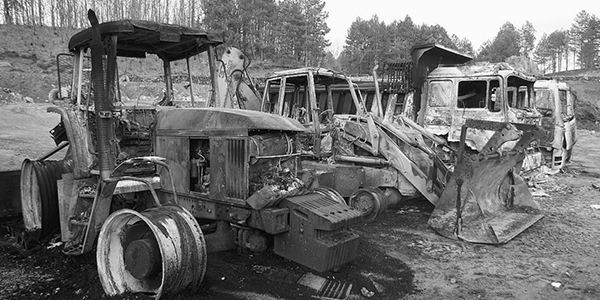Do you believe in a better world? Do you believe in one without the torture of poverty and slavery; without hierarchies based on dominance; without a dying planet? If you do believe in this world, what are you willing to do to help bring it about?
I know many who yearn for justice, but far fewer with any kind of plan for achieving it. There’s no lack of morality in this equation, just of strategy and, perhaps, courage.
Every movement for social change has understood that when a system of law is corrupt, we must turn instead to the laws of the universe: human rights, the living land, justice. These movements are always deemed radical—and that’s because they are. Hope and prayers do not alone work to change the world. We’re going to have to fight for it.
All your heroes of the past knew this. Those who won civil rights knew it. Those who won women’s suffrage knew it. Those who abolished slavery knew it. Those who freed India from colonial rule knew it.
Martin Luther King, Jr. clearly understood this. He said, “Freedom is never given to anybody, for the oppressor has you in domination because he plans to keep you there, and he never voluntarily gives it up. And that is where the strong resistance comes. We’ve got to keep on keeping on, in order to gain freedom. It is not done voluntarily, but it is done through the pressure that comes about from people who are oppressed. Privileged classes never give up their privileges without strong resistance.”
All movements striking at the roots of social problems were—and still are—radical by default.



